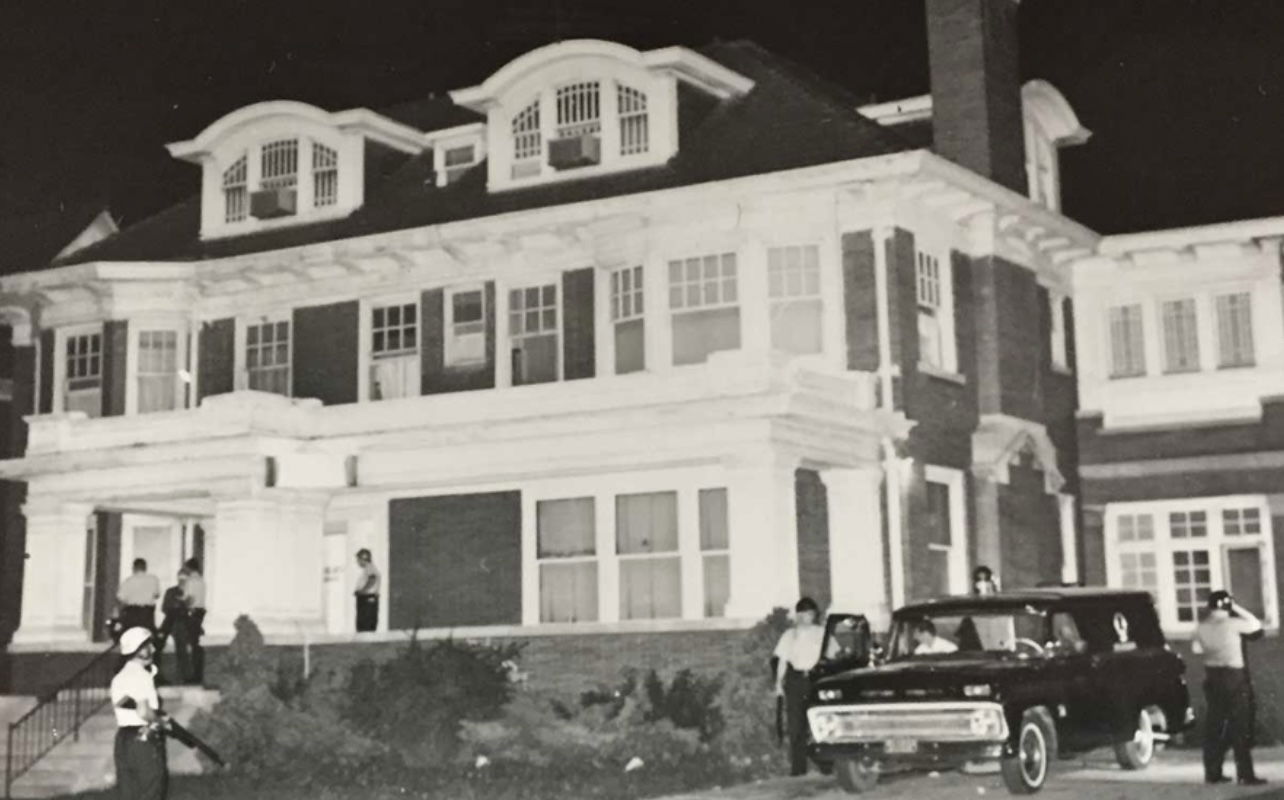
July 29, 2024
Historical Marker Placed At Detroit Motel In Honor Of 3 Black Teens Killed In 1967
Fred Temple, Carl Cooper, and Aubrey Pollard, were killed by white law enforcement during the Detroit Uprising of 1967.
A new historical marker was erected on July 26 in Detroit. The marker was placed as a dedication at the site where three Black teenagers were murdered by white local and federal law enforcement at the Algiers Motel during the civil riots in 1967. After 57 long years, the victims’ families have seen Fred Temple, 18, Carl Cooper, 17, and Aubrey Pollard, 19, begin to get the acknowledgment that they deserve from the city.
The three young men killed at the Algiers Motel on Woodward Avenue are well-known victims of what is known as the “Detroit Uprising.”
Members of the Temple, Cooper, and Pollard families attended the dedication memorial, as did longtime Detroit political figures and activists. In attendance at the marker placement were Detroit Mayor Mike Duggan and Lt. Gov. Garlin Gilchrist, activists V. Lonnie Peek Jr. and Dan Aldridge, and historians Jamon Jordan and Danielle McGuire attended the event.
Gilchrist said of the historical designation, “We decided that we were going to build and strengthen one another. Even in the face of setbacks that came to the Temple family, the Pollard family, and the Cooper family, the injustices and indignities that they saw and the others who lost their lives during the rebellion, their resolve was strengthened day by day.”
Not only were Temple, Cooper, and Pollard killed at the site, but two white women and seven other Black men were horrifically beaten by Detroit city police and United States National Guardsmen.
In an interview with CBS News for the memorial, a friend of the three men who witnessed their deaths, Lee Forsyth, recalled the memories of watching his best friends be killed by law enforcement in 1967.
He described, “I can see my room right there. I’ve been here twice in the past 57 years. This is great, the memorial. It’s for someone else to remember. I don’t want to remember it.”
Mayor Duggan added, “This day should have been done a long time ago. I’m proud to be the mayor when this historic marker is placed today to teach the next generation.”
Historian Danielle McGuire has dedicated much of her career to uncovering what happened that night. She told the outlet that the historical marker is a symbol that the history will not be suppressed, and it emphasizes the importance of remembrance of a time when fewer than 300 of the Detroit Police Department’s 5,000-member were African American.
“By remembering the lives of Aubrey Pollard, Carl Cooper, and Fred Temple, and everyone who was harmed here that night, we combat the dangers of forgetting, and we work together to build a better world where this kind of brutality and violence is not repeated,” said McGuire.
During the long, hot summer of 1967, civil unrest began stirring in Detroit after police raided an unlicensed bar in a predominantly Black West Side neighborhood, escalating tensions between law enforcement and residents. In the proceeding, five days starting July 23, 1967, 43 deaths occurred, hundreds of people were injured, and 7,000 were arrested as nearly 1,700 fires were set around the city. The youngest of the victims was a 4-year-old girl named Tayna Blanding, who was hit by a police officer’s bullet inside her apartment building.